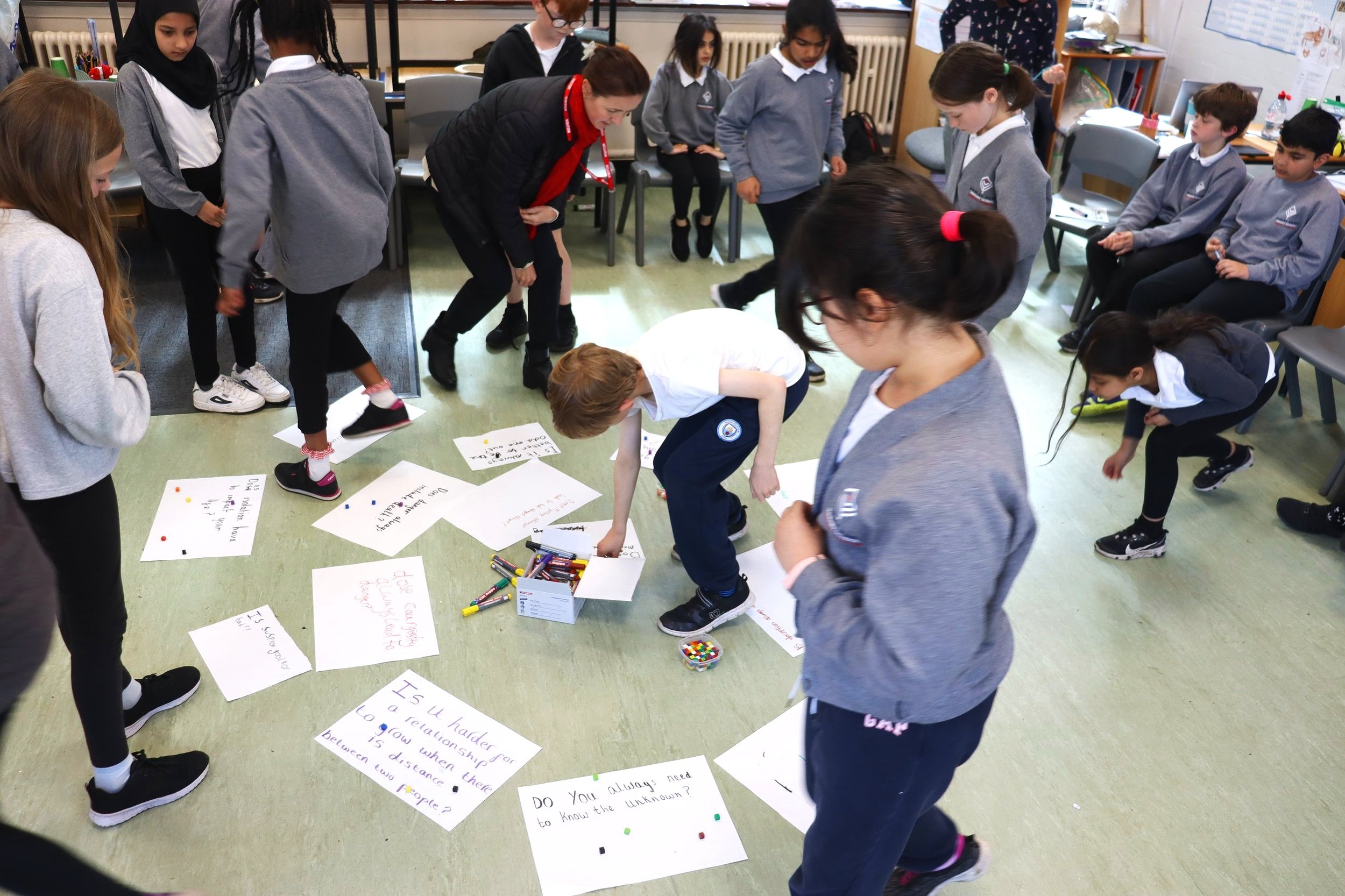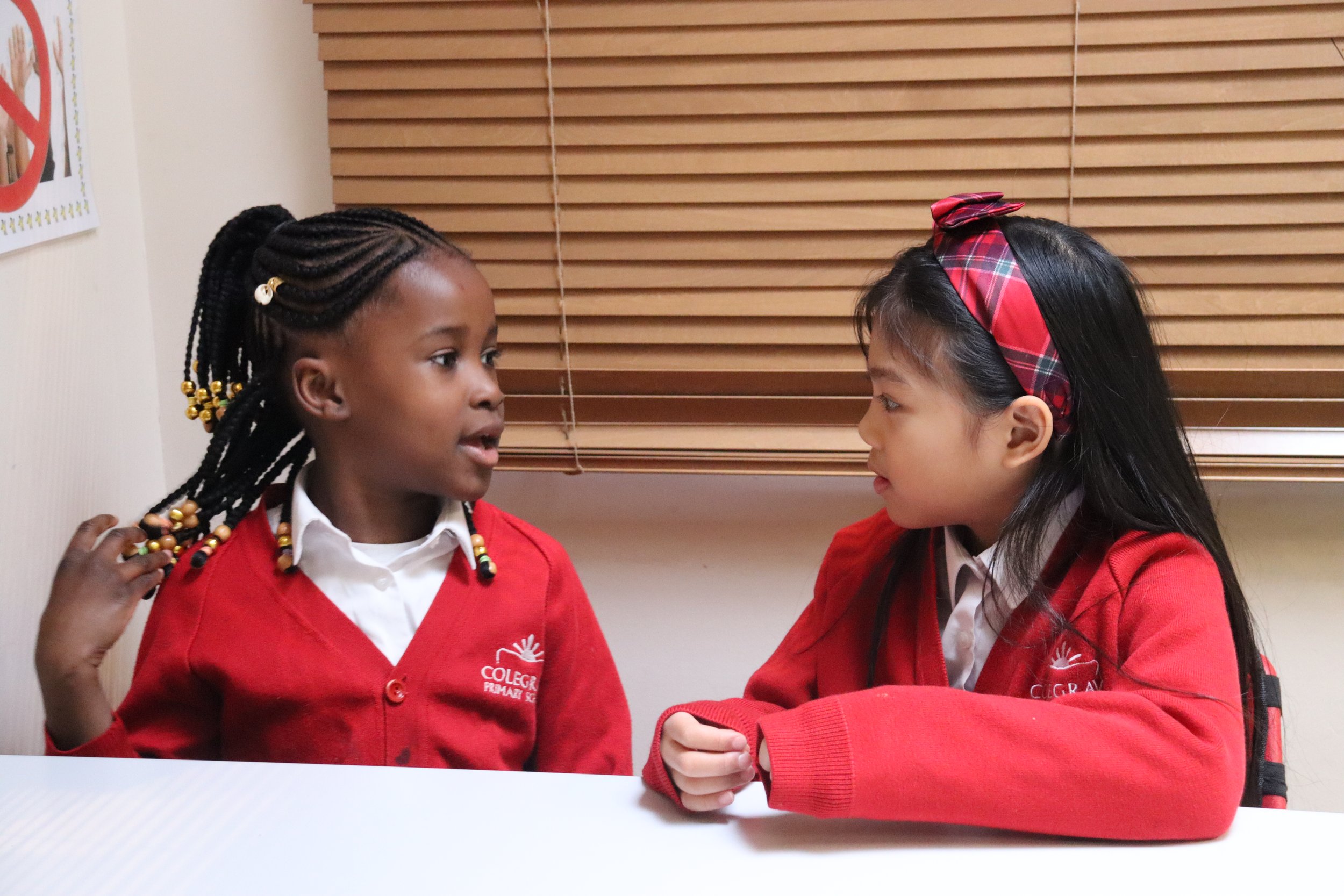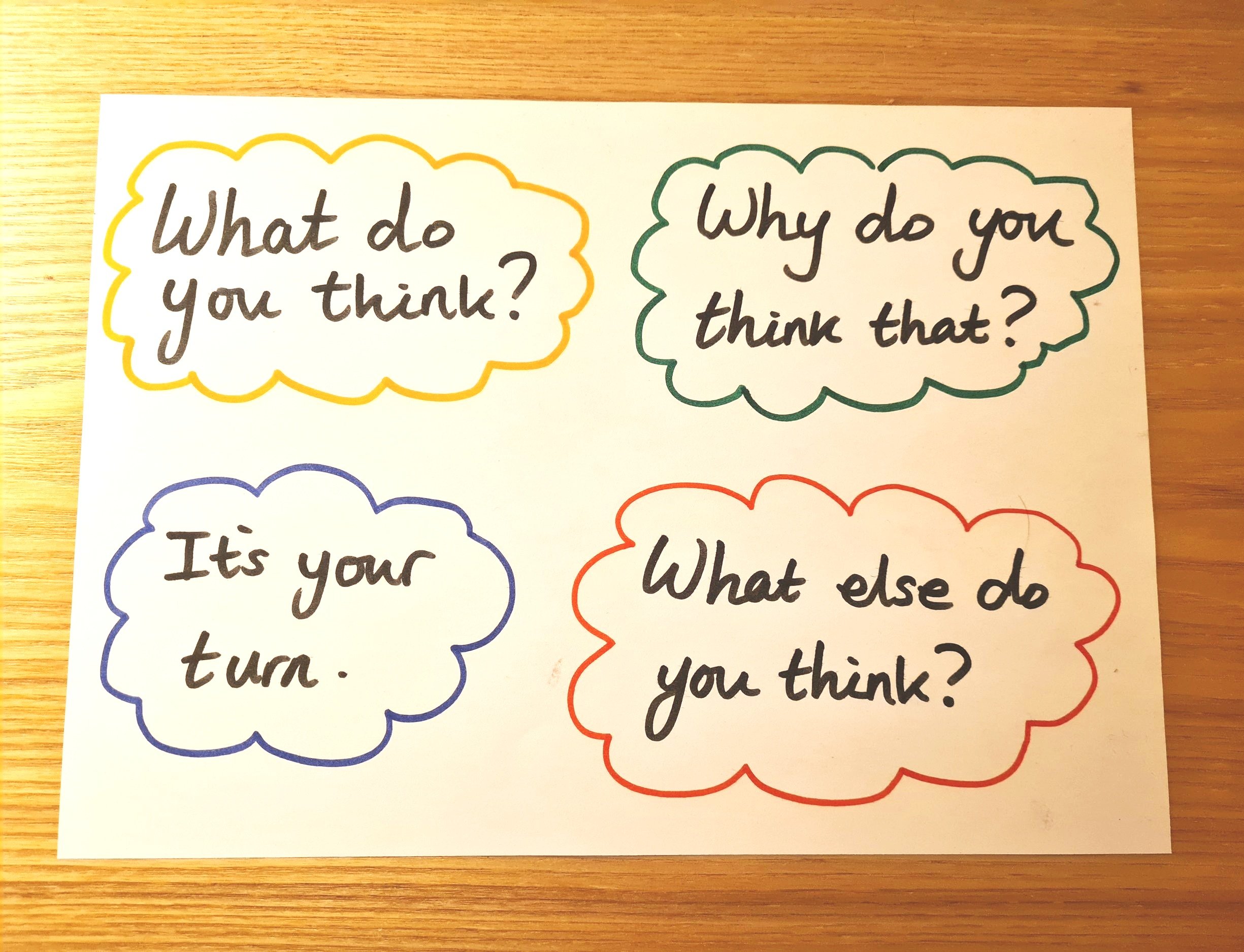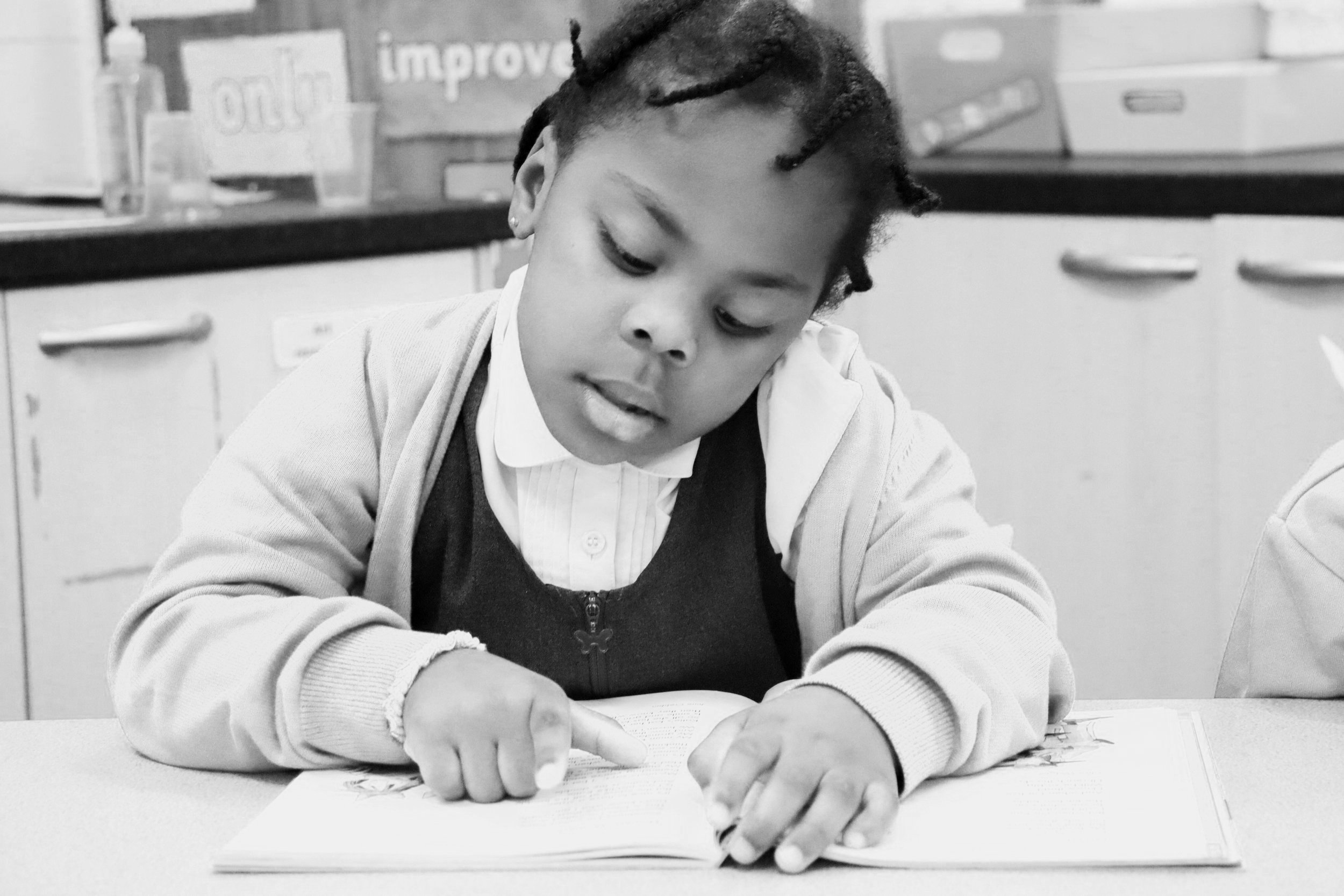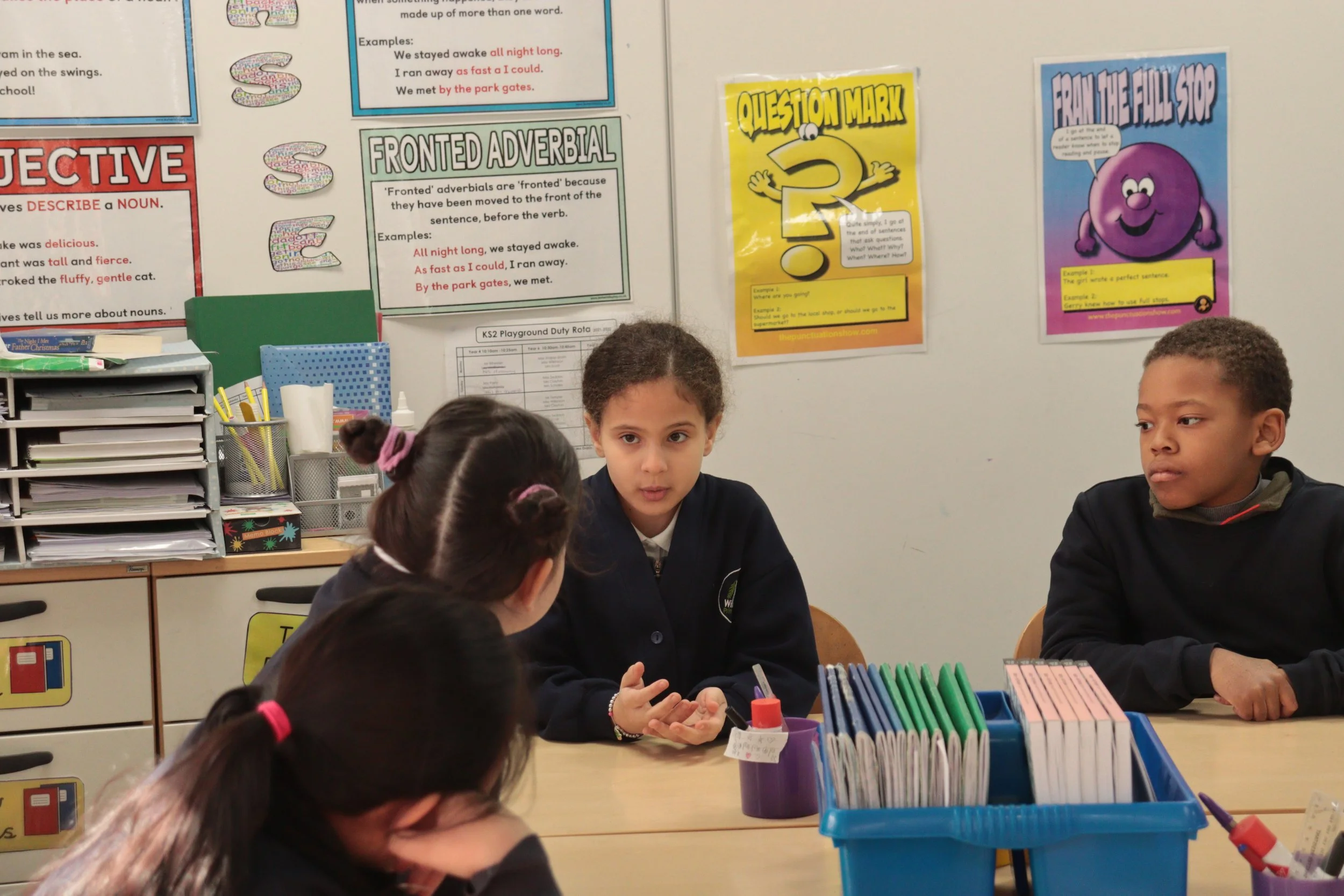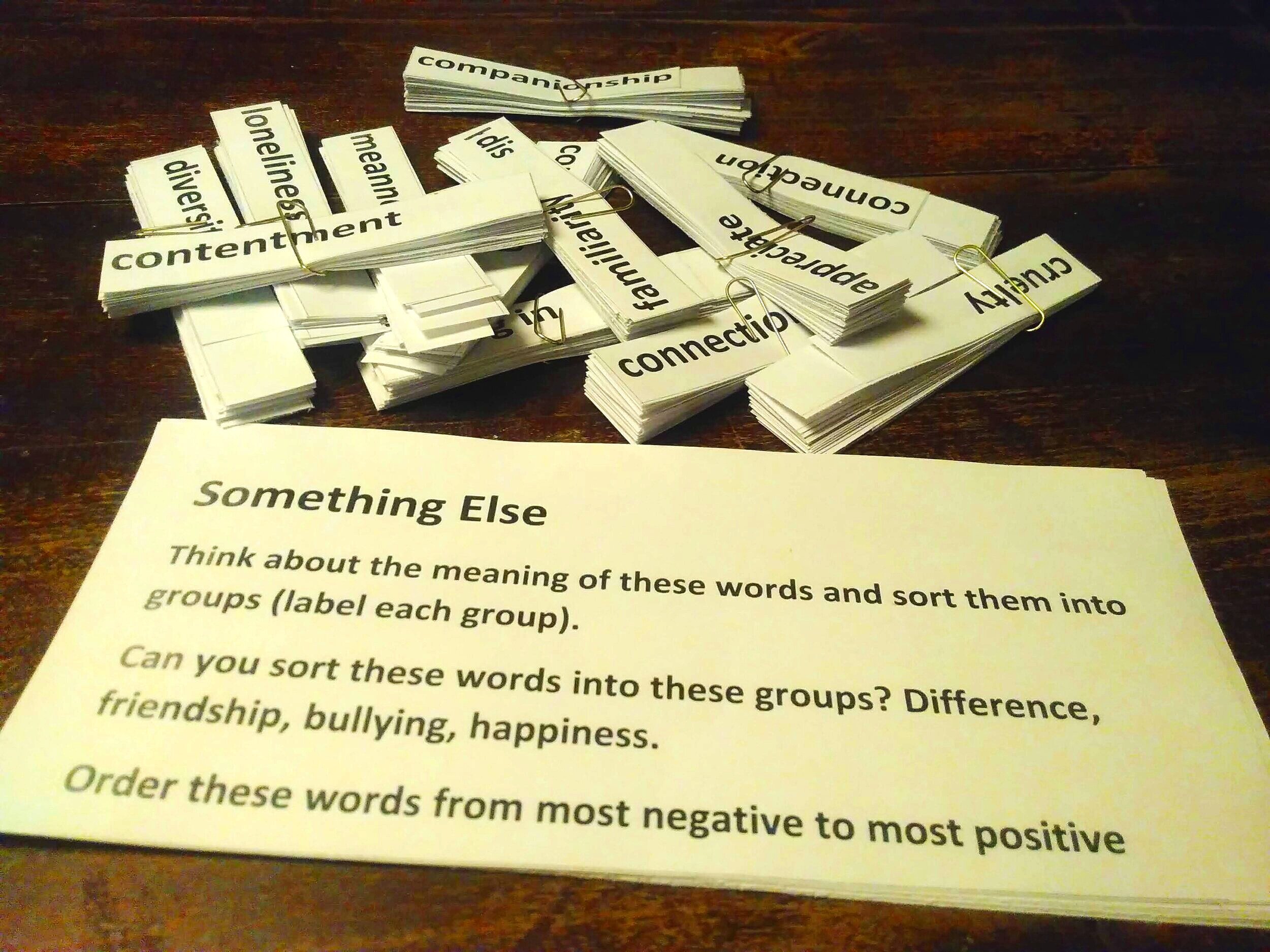Remember that when you do talk partners, no matter how you set it up, it’s good to take a moment to check the pairings. This may sound obvious, but it’s surprising how often we rush and forget! I often see teachers say Talk to your partner, and then without looking around the room, immediately join in with one of the pairs. This can result in children being left out, waiting and unsure what to do – missing out on the learning.
Hopefully, your class are already good at taking initiative and acting if someone hasn’t got a partner. However, it’s still worth those few seconds that it takes to check around the room for proper pairings.

It’s great to see this teacher checking the pairs before a talk partner task.
Some quick questions you could ask yourself:
Has everyone got a partner?
Are pupils facing each other?
Are there any threes unnecessarily?
Ways to keep everyone engaged and develop the community of enquiry
A detailed description including building, helping, sharing and working together
Take a moment to check talk partner pairings to make sure no-one misses out on learning
Providing talk prompts to students can increase the quality of partner talk
Why giving out ‘talking objects’ is worth the hassle
Strategies to help as many pupils as possible access philosophical enquiry
The importance of taking a moment to look and listen carefully
More useful resources, including a Talk Tally to get pupils listening closely
Encouraging pupils to think more deeply in reflection and talk time
Three essential ingredients to ensure pupils have the confidence to speak in front of their peers
Generating dialogue, comparing concepts, deepening understanding.

